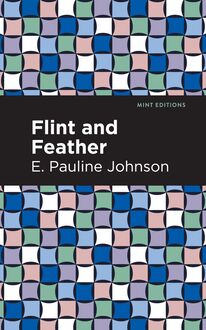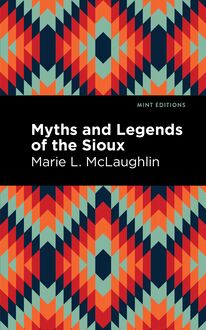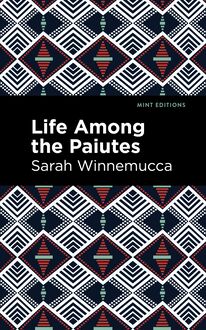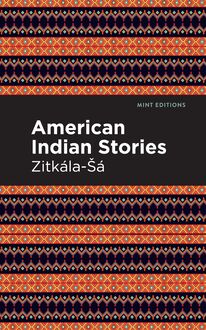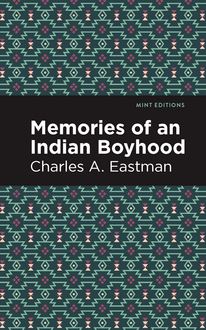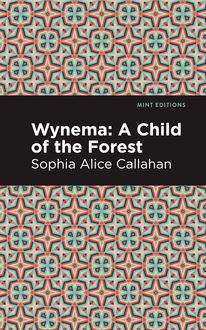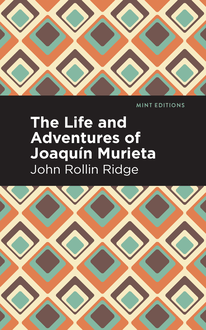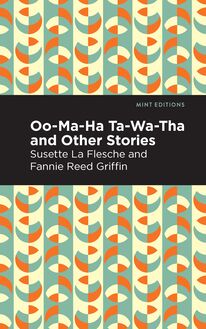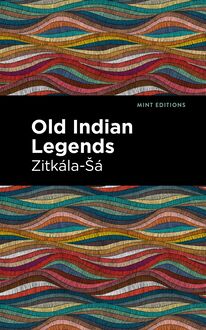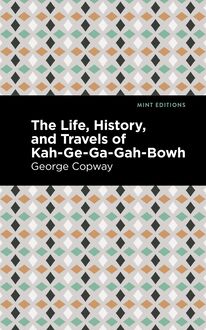-
 Univers
Univers
-
 Ebooks
Ebooks
-
 Livres audio
Livres audio
-
 Presse
Presse
-
 Podcasts
Podcasts
-
 BD
BD
-
 Documents
Documents
-
- Cours
- Révisions
- Ressources pédagogiques
- Sciences de l’éducation
- Manuels scolaires
- Langues
- Travaux de classe
- Annales de BEP
- Etudes supérieures
- Maternelle et primaire
- Fiches de lecture
- Orientation scolaire
- Méthodologie
- Corrigés de devoir
- Annales d’examens et concours
- Annales du bac
- Annales du brevet
- Rapports de stage
La lecture à portée de main
Vous pourrez modifier la taille du texte de cet ouvrage
Découvre YouScribe en t'inscrivant gratuitement
Je m'inscrisDécouvre YouScribe en t'inscrivant gratuitement
Je m'inscrisEn savoir plus
Vous pourrez modifier la taille du texte de cet ouvrage
En savoir plus

Description
Life Among the Paiutes (1883) is a book by Sarah Winnemucca. Written toward the end of a lifetime of advocacy on behalf of Native Americans, Life Among the Paiutes is a hybrid work of history and memoir by Sarah Winnemucca, who witnessed firsthand the dangers of unchecked occupation by US government and military forces. Intended as a rallying cry to white Americans, Life Among the Paiutes is considered the first autobiographical work written by a woman of Native American heritage. Oh my dear good Christian people, how long are you going to stand by and see us suffer at your hands?” First and foremost, Winnemucca’s groundbreaking text is intended for an Anglo-American audience, whose political status the author hopes to use as a means of bringing her message to the halls of Congress. In the memoir section, Winnemucca describes her upbringing among the Northern Paiute in Nevada, whose lives were irrevocably disrupted by incursions from white settlers and military raids. After the murder of her mother and several members of her family by the US Cavalry, Winnemucca dedicated herself to social work and activism, using her knowledge of the English language to reach a larger audience. Weaving her own story into the story of her people, Winnemucca makes a compelling case for the reparation of land and sovereignty to the Northern Paiutes, who had been devastated and dispersed for decades after making contact with American settlers. With a beautifully designed cover and professionally typeset manuscript, this edition of Sarah Winnemucca’s Life Among the Paiutes is a classic work of Native American literature reimagined for modern readers.
Sujets
Informations
| Publié par | Mint Editions |
| Date de parution | 23 avril 2021 |
| Nombre de lectures | 0 |
| EAN13 | 9781513288420 |
| Langue | English |
| Poids de l'ouvrage | 2 Mo |
Informations légales : prix de location à la page 0,0500€. Cette information est donnée uniquement à titre indicatif conformément à la législation en vigueur.
Extrait
Life Among the Paiutes
Their Wrongs and Claims
Sarah Winnemucca
Life Among the Paiutes: Their Wrongs and Claims was first published in 1883.
This edition published by Mint Editions 2021.
ISBN 9781513283401 | E-ISBN 9781513288420
Published by Mint Editions®
minteditionbooks .com
Publishing Director: Jennifer Newens
Design & Production: Rachel Lopez Metzger
Project Manager: Micaela Clark
Typesetting: Westchester Publishing Services
C ONTENTS I. F IRST M EETING OF P IUTES AND W HITES II. D OMESTIC AND S OCIAL M ORALITIES III. W ARS AND THEIR C AUSES IV. C APTAIN T RUCKEE’S D EATH V. R ESERVATION OF P YRAMID AND M UDDY L AKES VI. T HE M ALHEUR A GENCY VII. T HE B ANNOCK W AR VIII. T HE Y AKIMA A FFAIR A PPENDIX
I
F IRST M EETING OF P IUTES AND W HITES
I was born somewhere near 1844, but am not sure of the precise time. I was a very small child when the first white people came into our country. They came like a lion, yes, like a roaring lion, and have continued so ever since, and I have never forgotten their first coming. My people were scattered at that time over nearly all the territory now known as Nevada. My grandfather was chief of the entire Piute nation, and was camped near Humboldt Lake, with a small portion of his tribe, when a party travelling eastward from California was seen coming. When the news was brought to my grandfather, he asked what they looked like? When told that they had hair on their faces, and were white, he jumped up and clasped his hands together, and cried aloud,—
“My white brothers,—my long-looked for white brothers have come at last!”
He immediately gathered some of his leading men, and went to the place where the party had gone into camp. Arriving near them, he was commanded to halt in a manner that was readily understood without an interpreter. Grandpa at once made signs of friendship by throwing down his robe and throwing up his arms to show them he had no weapons; but in vain,—they kept him at a distance. He knew not what to do. He had expected so much pleasure in welcoming his white brothers to the best in the land, that after looking at them sorrowfully for a little while, he came away quite unhappy. But he would not give them up so easily. He took some of his most trustworthy men and followed them day after day, camping near them at night, and travelling in sight of them by day, hoping in this way to gain their confidence. But he was disappointed, poor dear old soul!
I can imagine his feelings, for I have drank deeply from the same cup. When I think of my past life, and the bitter trials I have endured, I can scarcely believe I live, and yet I do; and, with the help of Him who notes the sparrow’s fall, I mean to fight for my down-trodden race while life lasts.
Seeing they would not trust him, my grandfather left them, saying, “Perhaps they will come again next year.” Then he summoned his whole people, and told them this tradition:—
“In the beginning of the world there were only four, two girls and two boys. Our forefather and mother were only two, and we are their children. You all know that a great while ago there was a happy family in this world. One girl and one boy were dark and the others were white. For a time they got along together without quarrelling, but soon they disagreed, and there was trouble. They were cross to one another and fought, and our parents were very much grieved. They prayed that their children might learn better, but it did not do any good; and afterwards the whole household was made so unhappy that the father and mother saw that they must separate their children; and then our father took the dark boy and girl, and the white boy and girl, and asked them, Why are you so cruel to each other? ‘They hung down their heads, and would not speak. They were ashamed. He said to them, ‘Have I not been kind to you all, and given you everything your hearts wished for? You do not have to hunt and kill your own game to live upon. You see, my dear children, I have power to call whatsoever kind of game we want to eat; and I also have the power to separate my dear children, if they are not good to each other.’ So he separated his children by a word. He said, ‘Depart from each other, you cruel children;—go across the mighty ocean and do not seek each other’s lives.’
“So the light girl and boy disappeared by that one word, and their parents saw them no more, and they were grieved, although they knew their children were happy. And by-and-by the dark children grew into a large nation; and we believe it is the one we belong to, and that the nation that sprung from the white children will some time send some one to meet us and heal all the old trouble. Now, the white people we saw a few days ago must certainly be our white brothers, and I want to welcome them. I want to love them as I love all of you. But they would not let me; they were afraid. But they will come again, and I want you one and all to promise that, should I not live to welcome them myself, you will not hurt a hair on their heads, but welcome them as I tried to do.”
How good of him to try and heal the wound, and how vain were his efforts! My people had never seen a white man, and yet they existed, and were a strong race. The people promised as he wished, and they all went back to their work.
The next year came a great emigration, and camped near Humboldt Lake. The name of the man in charge of the trains was Captain Johnson, and they stayed three days to rest their horses, as they had a long journey before them without water. During their stay my grandfather and some of his people called upon them, and they all shook hands, and when our white brothers were going away they gave my grandfather a white tin plate. Oh, what a time they had over that beautiful gift,—it was so bright! They say that after they left, my grandfather called for all his people to come together, and he then showed them the beautiful gift which he had received from his white brothers. Everybody was so pleased; nothing like it was ever seen in our country before. My grandfather thought so much of it that he bored holes in it and fastened it on his head, and wore it as his hat. He held it in as much admiration as my white sisters hold their diamond rings or a sealskin jacket. So that winter they talked of nothing but their white brothers. The following spring there came great news down the Humboldt River, saying that there were some more of the white brothers coming, and there was something among them that was burning all in a blaze. My grandfather asked them what it was like. They told him it looked like a man; it had legs and hands and a head, but the head had quit burning, and it was left quite black. There was the greatest excitement among my people everywhere about the men in a blazing fire. They were excited because they did not know there were any people in the world but the two,—that is, the Indians and the whites; they thought that was all of us in the beginning of the world, and, of course, we did not know where the others had come from, and we don’t know yet. Ha! ha! oh, what a laughable thing that was! It was two negroes wearing red shirts!
The third year more emigrants came, and that summer Captain Fremont, who is now General Fremont.
My grandfather met him, and they were soon friends. They met just where the railroad crosses Truckee River, now called Wadsworth, Nevada. Captain Fremont gave my grandfather the name of Captain Truckee, and he also called the river after him. Truckee is an Indian word, it means all right, or very well. A party of twelve of my people went to California with Captain Fremont. I do not know just how long they were gone.
During the time my grandfather was away in California, where he staid till after the Mexican war, there was a girl-baby born in our family. I can just remember it. It must have been in spring, because everything was green. I was away playing with some other children when my mother called me to come to her. So I ran to her. She then asked me to sit down, which I did. She then handed me some beautiful beads, and asked me if I would like to buy something with them. I said:—
“Yes, mother,—some pine nuts.”
My mother said:—
“Would you like something else you can love and play with? Would you like to have a little sister?” I said,—
“Yes, dear mother, a little, little sister; not like my sister Mary, for she won’t let me play with her. She leaves me and goes with big girls to play;” and then my mother wanted to know if I would give my pretty beads for the little sister.
Just then the baby let out such a cry it frightened me; and I jumped up and cried so that my mother took me in her arms, and said it was a little sister for me, and not to be afraid. This is all I can remember about it.
When my grandfather went to California he helped Captain Fremont fight the Mexicans. When he came back he told the people what a beautiful country California was. Only eleven returned home, one having died on the way back.
They spoke to their people in the English language, which was very strange to them all.
Captain Truckee, my grandfather, was very proud of it, indeed. They all brought guns with them. My grandfather would sit down with us for hours, and would say over and over again, “Goodee gun, goodee, goodee gun, heap shoot.” They also brought some of the soldiers’ clothes with all their brass buttons, and my people were very much astonished to see the clothes, and all that time they were peaceable toward their white
-
 Univers
Univers
-
 Ebooks
Ebooks
-
 Livres audio
Livres audio
-
 Presse
Presse
-
 Podcasts
Podcasts
-
 BD
BD
-
 Documents
Documents
-
Jeunesse
-
Littérature
-
Ressources professionnelles
-
Santé et bien-être
-
Savoirs
-
Education
-
Loisirs et hobbies
-
Art, musique et cinéma
-
Actualité et débat de société
-
Jeunesse
-
Littérature
-
Ressources professionnelles
-
Santé et bien-être
-
Savoirs
-
Education
-
Loisirs et hobbies
-
Art, musique et cinéma
-
Actualité et débat de société
-
Actualités
-
Lifestyle
-
Presse jeunesse
-
Presse professionnelle
-
Pratique
-
Presse sportive
-
Presse internationale
-
Culture & Médias
-
Action et Aventures
-
Science-fiction et Fantasy
-
Société
-
Jeunesse
-
Littérature
-
Ressources professionnelles
-
Santé et bien-être
-
Savoirs
-
Education
-
Loisirs et hobbies
-
Art, musique et cinéma
-
Actualité et débat de société
- Cours
- Révisions
- Ressources pédagogiques
- Sciences de l’éducation
- Manuels scolaires
- Langues
- Travaux de classe
- Annales de BEP
- Etudes supérieures
- Maternelle et primaire
- Fiches de lecture
- Orientation scolaire
- Méthodologie
- Corrigés de devoir
- Annales d’examens et concours
- Annales du bac
- Annales du brevet
- Rapports de stage
